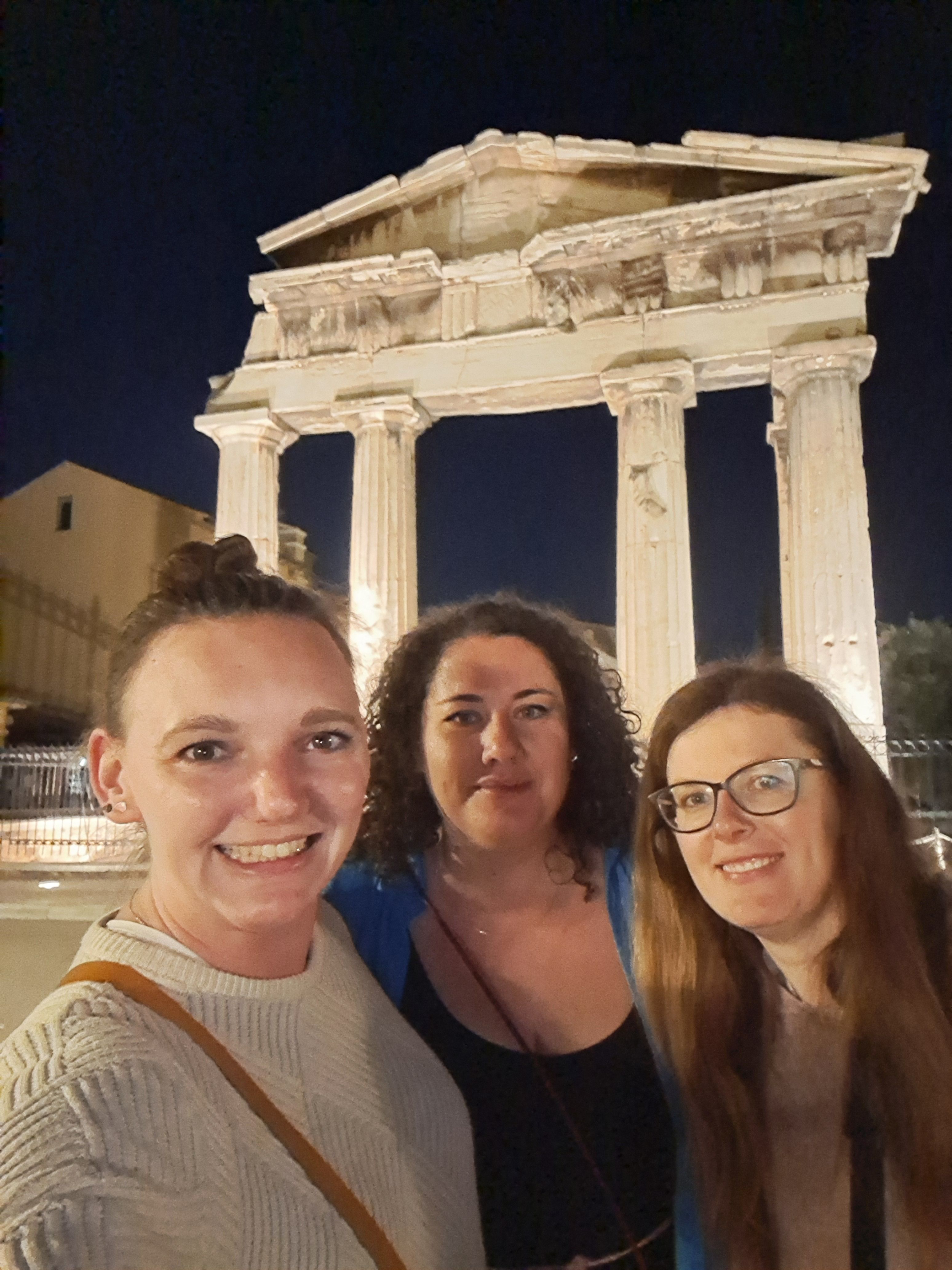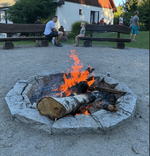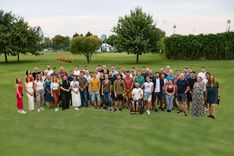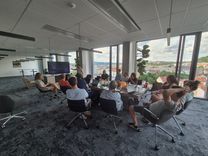This time, Barča shared how projects at LOGEX evolve, as well as her professional journey. In the interview, you'll learn about the approach to Scrum, the benefits of Techsprints, and how to leverage every project for personal and professional growth. Enjoy reading!
How long have you been working with us and in which position?
It’s been almost 5 years. I joined LOGEX in May 2020 as a middle frontend developer.
Do you remember how you ended up with us and what caught your attention about working at LOGEX?
COVID was just starting, I had quit my previous job, and LOGEX was one of the few companies still hiring.
I was intrigued by the job ad in the form of code in one of the Facebook IT groups. I then researched more about the company, what they do, and where their offices are.
The healthcare field sounded interesting, and the location in the center of Brno was just the cherry on top.
I was a bit worried about transitioning from a small Brno company, where we were all friends, to a larger multinational, but it soon became clear that my worries were unnecessary.
From the interview, I had a good feeling. Unlike other companies, it was very friendly. :)
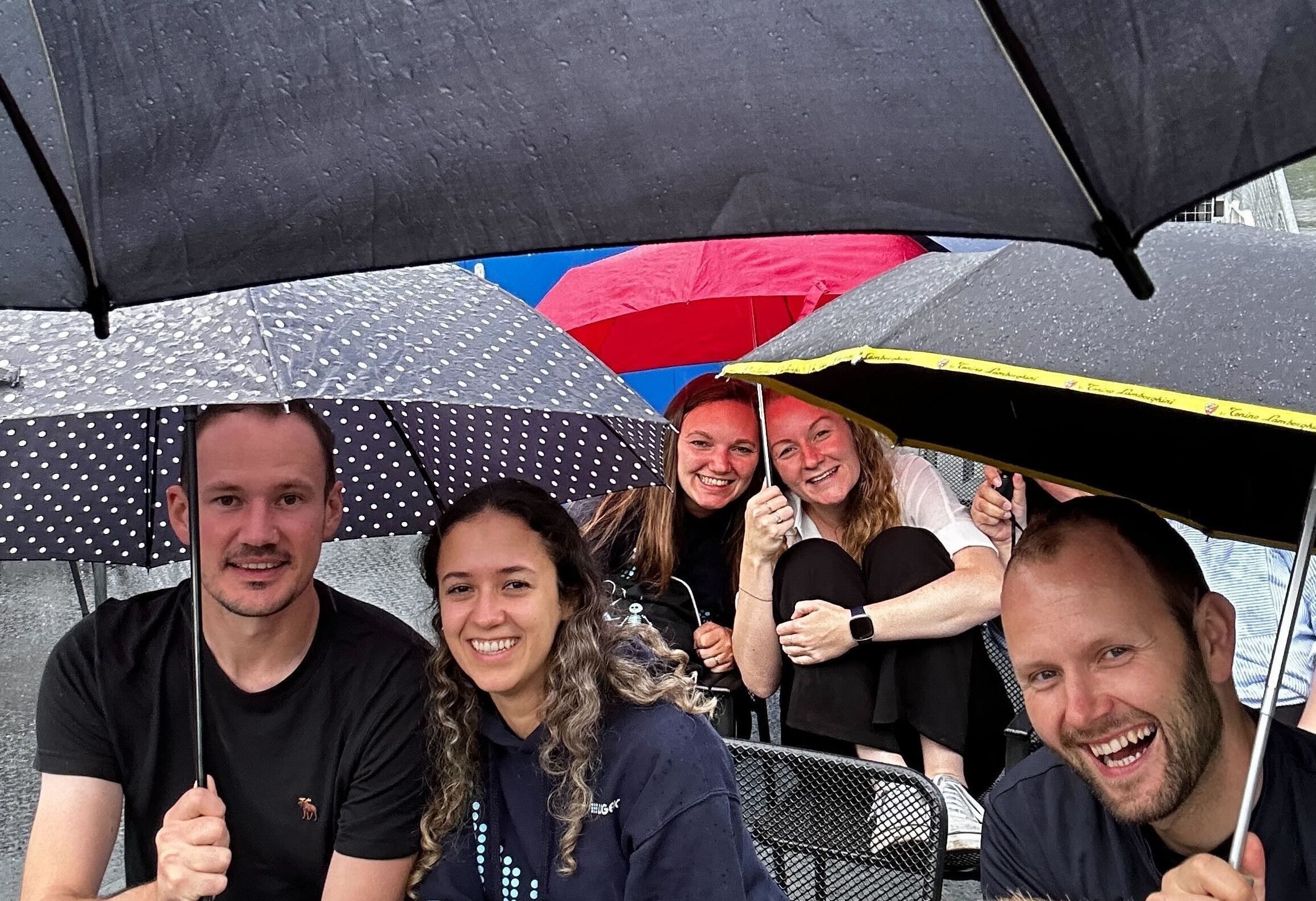
When you started, we didn’t have career pages yet. Where did you find information about the company?
I found most of the information about the Brno office in the job ad, but of course, I also checked out the official website. However, it was more focused on clients from the Netherlands than job seekers in Brno. I was even more excited when I got the chance to contribute to the creation of the career page, workwithlogex.cz, which is dedicated to hiring in Brno. It was an interesting experience, especially implementing the "X-ray" feature on the homepage and integrating it with the company Instagram. I also worked on my bachelor’s thesis, during which a colleague implemented a doctor-themed game on our career page.
As a developer, you work in Scrum. How is it set up in your team? What does a typical sprint look like?
At LOGEX, we follow SCRUM, but if you ask someone from another team, you’ll probably get a slightly different answer.
We adjust the SCRUM rituals based on what suits our team and helps us work well.
In our team, we have two-week sprints. The sprint starts with planning, where the product manager orders tickets by priority. Based on the developers' capacity, only the tickets we can realistically handle are added to the sprint.
If a critical bug appears in production, we address it immediately, but something planned for the sprint must be removed.
Three times a week, we have a short catch-up in the morning to align on what’s needed. Once a week, we have storytelling, where we talk about the work ahead. In this meeting, we try to extract as many business requirements as possible from the product manager and understand why we are working on a particular feature. From there, we move to the dev meeting, where we propose technical solutions and write tickets for each task.
We also have a retrospective every two weeks. It can be tough at times, but it helps move the team forward and keep us all on the same page. We often choose the retrospective topics ourselves and discuss what’s not working well. If no one suggests a topic, our scrum master always sees something that can be improved. :D
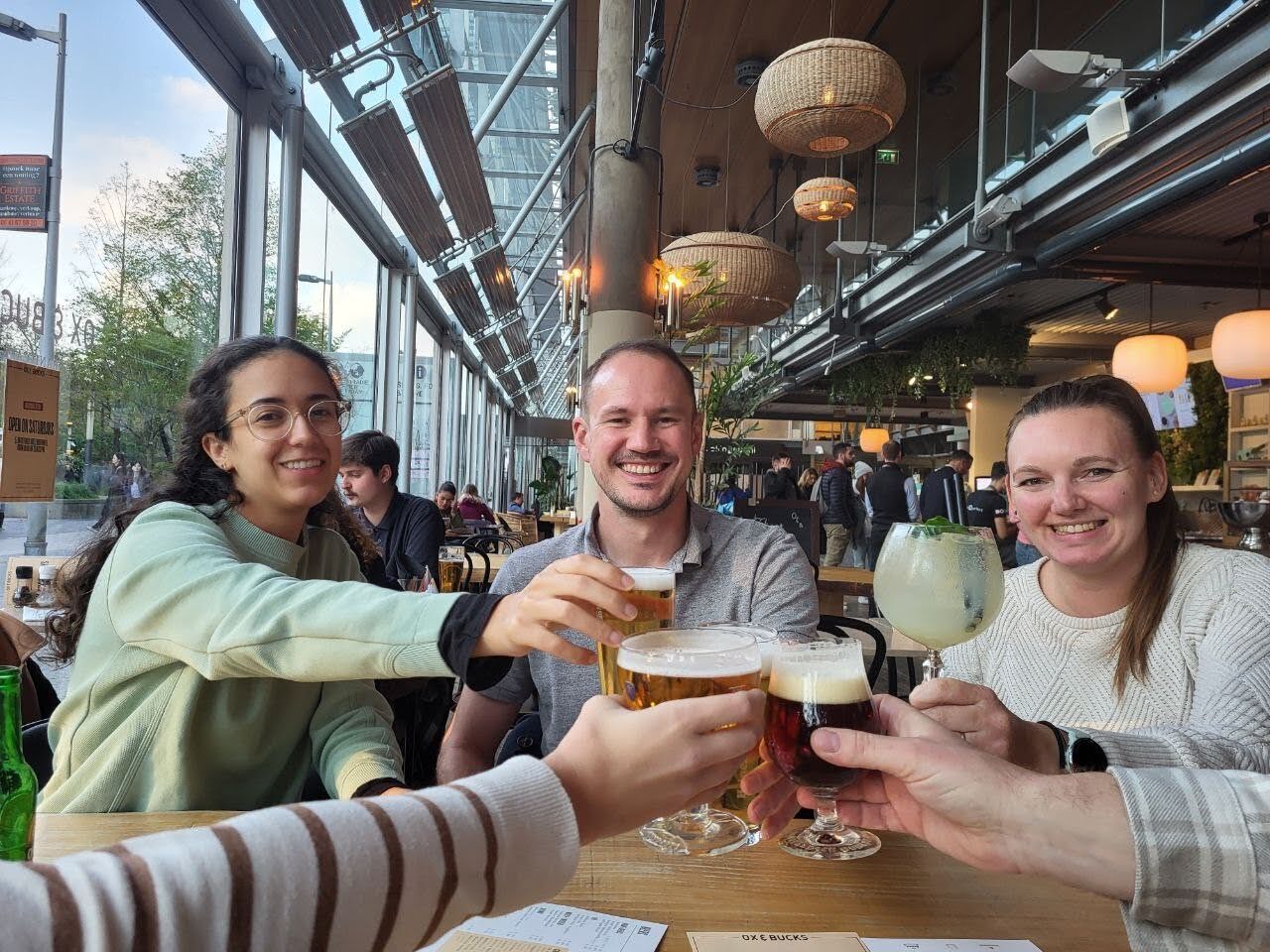
What do you see as the main pros and cons of your approach to Scrum?
The main advantage is that we don’t have to follow a strict company-wide SCRUM structure. We set up our meetings in a way that works for us. I would also say that since we have a say in what goes into the sprint, we usually keep the workload at a reasonable level. On one hand, we are responsible for making sure that what was agreed upon is finished, but if something unexpected happens – like a production bug, complications during implementation, or illness – and something planned is not completed, I know no one will get upset. The key is to communicate everything in time and honestly. The downside is that if someone switches teams, they need to be a bit flexible.
What project are you working on now?
Last year, we started a big project – New Data Platform. We want to improve how data from clients is imported into LOGEX. The New Data Platform has many components, each responsible for a different part of the process.
The customer uploads the data, and we store it in our data structures, performing various preprocessing and validations. Our team is working on data validation. On the frontend, I’m responsible for ensuring that the customer receives a clear and readable report about what’s wrong with their data. We also guide the client on how to improve data quality.
Do you follow technological news? If so, where do you get your information from?
Honestly, I’m not the type of person who reads tech blogs or follows the latest trends. I usually get inspired during code reviews or while chatting in the kitchen. We have a few colleagues who are more into learning and education. When I’m curious or need advice, I go talk to them. :D I prefer to learn on the go, based on what’s needed at the moment, and I immediately apply new knowledge in my daily work.
Do you have space for learning and professional growth at work? What opportunities do you take advantage of?
In our team, we have the space, budget, and support to learn new things. I’ve attended two international Angular conferences with several colleagues, which was a great event both from an educational and team-building perspective. :)
Last year, we had a shortage of capacity for C# development in our team. After discussing it with my manager and the rest of the team, I decided to move in this direction. I took an internal C# beginner course, watched a few Pluralsight videos, and started handling simpler tickets related to C# API. Gradually, I worked my way up to more complex tasks and even created a completely new C# application for one of the Nightingale components, which was entirely my responsibility.
When I needed help, I could always count on the more experienced colleagues from my team and the neighboring team. I had my Pluralsight subscription paid for from the company’s education budget. As for learning time, I mostly used Techsprints for theory and courses. However, much of my learning happened alongside my regular tasks, just at a slower pace compared to more experienced colleagues.
You mentioned Techsprints earlier. Can you tell us more about them?
Techsprints are an awesome thing we have about four times a year! They last for two weeks, during which the product manager takes a break, and the sprint’s focus is entirely on the developers. It’s a space for implementing our ideas, tweaks, learning, courses, and trying new things that help with development or improve our applications. Minor refactoring happens continuously, but if we want to try, improve, or change something more complex, a tech sprint is the perfect time for it. No business tickets are allowed in it, except for critical bug fixes. We have 10 full working days to focus on whatever we want. Even during a Techsprint, we have standard SCRUM meetings. We start with planning, where we present our plans to the rest of the team and explain their benefits. After the Techsprint, we also have a demo meeting where each person has around 5 minutes to show what they’ve worked on.
What do you like to do in your free time, and do you have any plans for this year?
A few months ago, we got a puppy, so most of my free time is currently spent on walks around Brno and training, so Dumbo doesn’t jump on our heads.
I also enjoy hiking, but unlike some more experienced colleagues, I’m more of a scenic type. So instead of focusing on performance, I prefer to enjoy the views at a slow pace. :D Occasionally, I do yoga and have been swimming since I was a child.
As for evening entertainment, I can see I’m getting older. I enjoy having a nice dinner with friends. We try new recipes every time. We always pick a country and prepare a themed appetizer, main course, and dessert.
Then we taste everything with wine and try not to burst. :D
What do you enjoy most about working at LOGEX?
Definitely the work-life balance. I’ve found great friends at work, with whom I enjoy spending time even after work or during vacations. Plus, I never feel stressed at work. We don’t have crazy deadlines, and if someone gets sick, I know my team will handle everything without me.
I’m also glad LOGEX has helped me grow in my career. My manager has probably played the biggest role in that. :)
He helped guide me on what to learn, how to effectively use company resources, and overcome the initial stage when you’re still learning and worried about making big mistakes. Thanks, Jirka (refers to Jiří Zajíc)!
